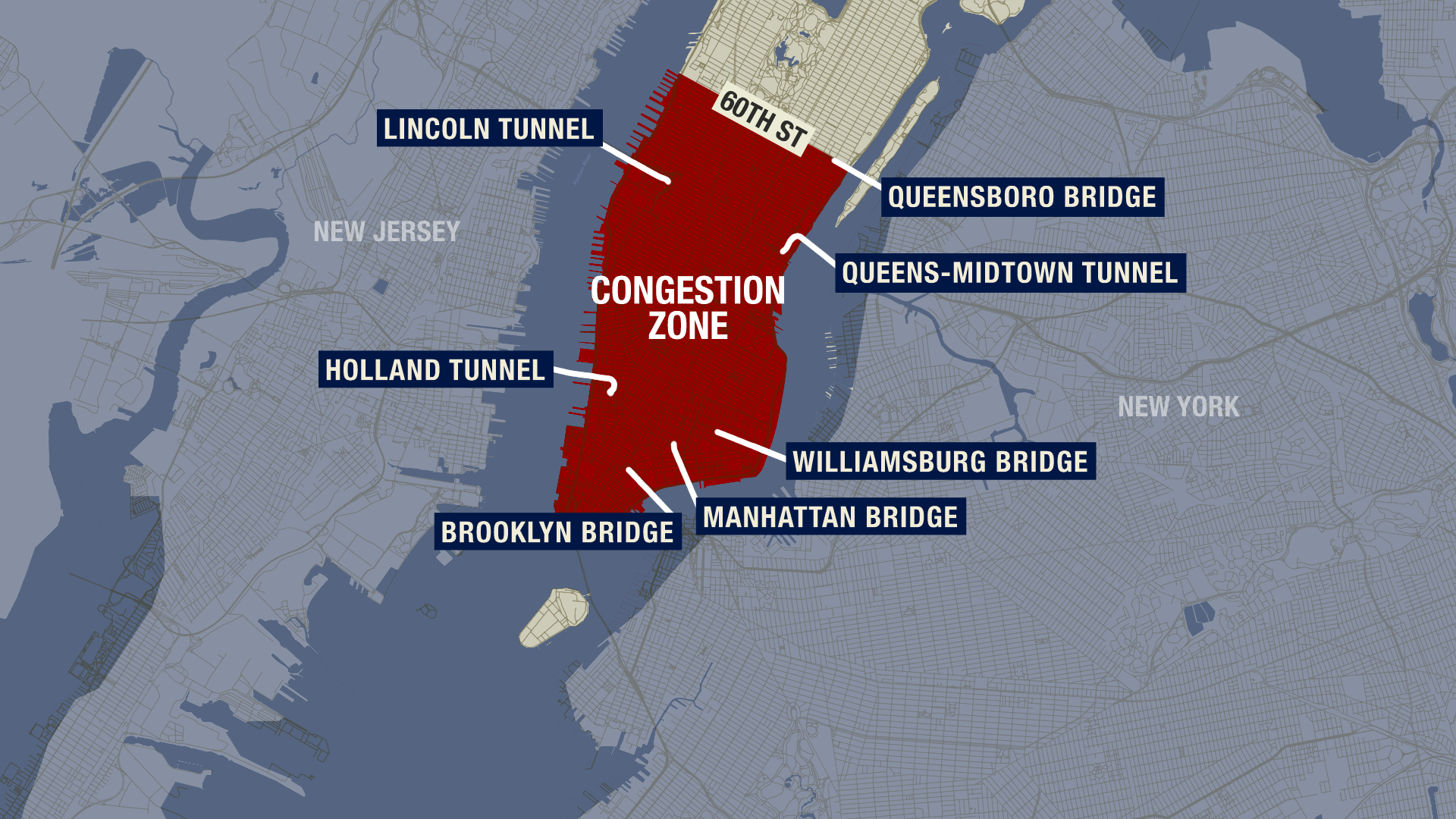More Stories
Friday was the last congestion pricing toll-free commute for Long Islanders heading into Lower Manhattan for work.
Starting, Sunday at midnight, the MTA will turn on the electronic tolls and begin charging drivers.
It's been a bumpy road to get to this point, which included a temporary pause on the program over concerns by Gov. Kathy Hochul that the original $15 toll was too high.
Supporters of the policy say it will generate much-needed revenue to improve public transit, reduce traffic and lower car pollution.
Opponents call it a cash-grab and argue it puts the burden of filling the MTA's budget deficit on the backs of commuters, particularly in the suburbs.
What is Congestion Pricing?
Drivers taking local roads between 60th Street and The Battery in Manhattan will be charged a new fee starting this weekend.

How much will it cost?
During peak hours of 5 a.m. to 9 p.m. on weekdays and 9 a.m. to 9 p.m. on weekends, passenger cars with E-ZPass will be charged $9. Motorcycles will pay $4.50, and trucks and buses will pay between $14.40-$21.60.
Off-peak prices will be cut significantly with cars paying $2.25, motorcycles $1.05, and trucks and buses $5.40.
Are there discounts?
The MTA approved several exemptions including for low-income drivers, emergency and government vehicles as well as school and commuter buses.
Ride share options including taxis will not be charged the toll but instead will pass a fee onto passengers.
After asking if the MTA is still accepting applications despite a Dec. 29 deadline posted on its website, the MTA released this statement:
“No, it will remain open but the main message is to apply now. The 12/29 date online was not a hard cutoff date where motorists would not be able to apply after that date.”
A judge declined to impose temporary restraining order Friday that would have halted congestion pricing.
More from News 12
0:18

After 80 years, Minute Maid's frozen canned juices are getting put on ice
3:27

Find help hitting your goals with these wellness book suggestions
4:01

The perfect pout: Look your best this Valentine's Day
4:35

Must-read memoirs you will love from the first to the last page
0:46

Many Americans could see higher tax refunds this year
1:41
